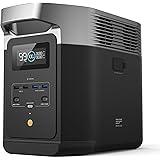Before you start prepping your family’s famous peach cobbler for the holidays, you may want to double-check your fridge bins: A bunch of fruit just got recalled, according to a statement released by the US Food and Drug Administration (FDA).
On November 17, the HMC Group Marketing, Inc., which sells under the name HMC Farms, announced a voluntary recall of peaches, plums, and nectarines due to possible listeria contamination. Three days later, the Centers for Disease Control and Prevention (CDC) issued a food safety alert due to a listeria outbreak linked to it. So far the CDC has reported 11 illnesses, including 10 hospitalizations and one death. The people who got sick were from seven states: California, Colorado, Florida, Illinois, Kansas, Michigan, and Ohio.
According to the FDA release, the affected fruit was sold at retail stores nationwide between May 1 and November 15, 2022, and between May 1 and November 15, 2023. They were available for purchase in two-pound plastic bags and individually by the piece.
The recall for the latter includes the PLU stickers for the following fruits:
- Yellow peach: 4044 or 4038
- White peach: 4401
- Yellow nectarine: 4036 or 4378
- White nectarine: 3035
- Red plum: 4042
- Black plum: 4040
HMC Farms recommends that you check your freezers and fridges to see if you have any affected bags or loose pieces of fruit. If you do, throw them away immediately—those delicious desserts can wait! According to the CDC, investigators still need to figure out whether any additional produce or products made with any of the peaches, plums, or nectarines may also be contaminated.
Listeria bacteria—which cause a foodborne illness called listeriosis—is nothing to play with. Symptoms typically show up within two weeks of eating the affected items, and can include diarrhea, nausea, fever, headaches, stiff neck, confusion, loss of balance, or seizures. For most people, listeria infections aren’t too serious, but they can be deadly for folks who are pregnant, older than 65, or who have weakened immune systems, according to the CDC. If you think you may have eaten any recalled fruit or are experiencing some of the effects listed above, call your health care provider immediately.
Listeria is a hardy germ that can spread and multiply in the refrigerator and even the freezer, reports the FDA. That’s why the CDC recommends washing anything that could have come in contact with your recalled fruit—say, your fridge drawers, any containers or bowls, and counters.
And yes, cooking food properly (to 165° F) does kill listeria. But it’s not worth the risk of contaminating your kitchen surfaces for the sake of peach cobbler. (And who doesn’t sneak a slice or two of fresh fruit before baking it?) That’s why the alert recommends trashing any affected products to be safe.
Still have questions regarding the recall? Contact HMC Farms at 844-483-3867 Monday through Friday from 8 a.m. to 8 p.m. EST with your concerns. In the meantime, as you gear up to bake with your family, just double-check your fridge first to make sure you’re not harboring contaminated fruits.
Related:
Note: This article have been indexed to our site. We do not claim legitimacy, ownership or copyright of any of the content above. To see the article at original source Click Here












